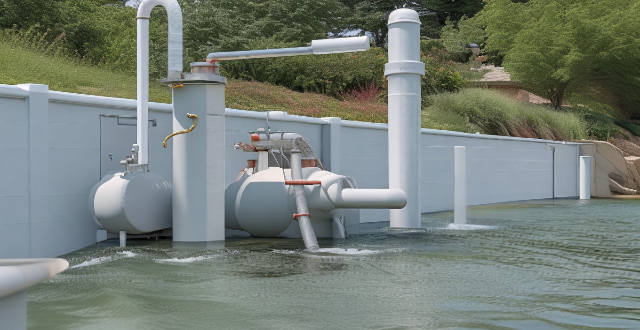The energy sector's substantial water consumption is a concern for sustainable development. Technological innovations, such as efficient cooling systems, advanced water treatment, renewable energy integration, smart water management, waste heat recovery, and improved desalination methods, can help reduce the sector's water footprint. These innovations offer benefits like resource conservation, cost efficiency, and reduced environmental impact, ultimately contributing to global water security.

Title: Reducing the Water Footprint in the Energy Sector through Technological Innovations
Introduction
The energy sector is one of the largest consumers of water resources globally, with significant demands for cooling processes, mining, and drilling operations. Reducing the water footprint in this sector is crucial for sustainable development and ensuring water security. This can be achieved through various technological innovations that optimize water usage and minimize waste.
Key Areas for Innovation
1. Efficient Cooling Systems
- Dry Cooling Technologies: Instead of using water for cooling, these systems utilize air to dissipate heat.
- Closed-Loop Cooling Systems: Recirculate treated water, reducing freshwater withdrawals.
2. Water Treatment Advancements
- Membrane Technology: Advanced membranes for more efficient water filtration and reuse.
- Bioremediation: Using microorganisms to treat wastewater onsite before release or reuse.
3. Renewable Energy Integration
- Solar Power: Less water-intensive than conventional thermal power plants.
- Wind Energy: Does not require water for operation.
4. Smart Water Management
- Sensor Networks: Real-time monitoring of water use and quality.
- Data Analytics: Optimizing water use through predictive modeling and machine learning.
5. Waste Heat Recovery
- Heat Exchangers: Recovering waste heat for water heating needs reduces overall water consumption.
6. Desalination Advances
- Energy-Efficient Desalination: New methods like forward osmosis reduce energy requirements and thus water demand.
Benefits of Technological Innovations
- Resource Conservation: Preserving water resources for other critical uses.
- Cost Efficiency: Long-term savings from reduced water consumption and treatment costs.
- Environmental Stewardship: Minimizing environmental impacts associated with water withdrawal and pollution.
Conclusion
Technological innovations offer promising avenues for the energy sector to significantly reduce its water footprint. By adopting efficient cooling systems, advancing water treatment processes, integrating renewable energy sources, implementing smart water management strategies, recovering waste heat, and enhancing desalination techniques, the sector can move towards sustainability while ensuring global water security.